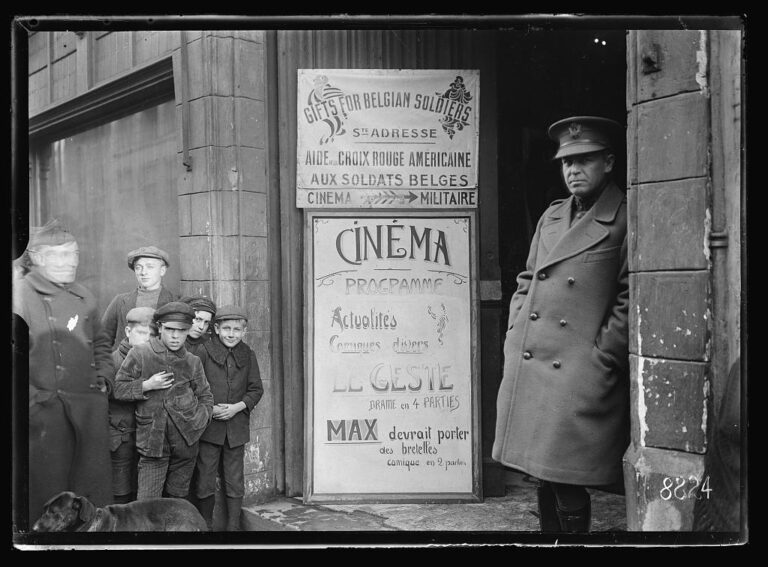In recent decades, Hollywood has dominated the global narrative on slavery, shaping public understanding with powerful, often cinematic portrayals of this dark chapter in history. Yet, when it comes to confronting colonial atrocities closer to home, French cinema has remained notably reticent. This raises critical questions about why France’s film industry has been slow to reckon with its own colonial past on screen. An insightful new article in The Guardian delves into this cultural and historical silence, examining the underlying reasons behind French cinema’s cautious approach to depicting colonial crimes and the broader implications for collective memory and national identity.
Slavery on Screen How Hollywood Shapes Global Memory and Perception
Hollywood‚Äôs portrayal of slavery has undeniably shaped international language and imagery surrounding this dark chapter of history, embedding a particular narrative in collective memory. From epic blockbusters to poignant dramas, the American film industry has transformed complex histories into stories that emphasize individual heroism, moral conflict, and systemic injustice. These narratives often prioritize certain themes‚ÄĒsuch as the struggle for freedom and resilience‚ÄĒwhile simplifying or sidelining nuanced socio-political contexts. This shaping of historical consciousness through cinema not only influences viewers in the U.S. but also across the globe, where Hollywood remains the dominant cultural export.
In contrast, French cinema’s approach to grappling with its colonial past, including the legacy of slavery, has been notably more cautious and slower to evolve. Several factors account for this hesitance:
- Political Sensitivities: Ongoing debates about national identity and immigration complicate open discussions of colonial crimes.
- Cultural Memory: There is a lingering preference to emphasize France‚Äôs ‚Äúcivilizing mission‚ÄĚ rather than confront atrocities committed.
- Industry Dynamics: A more fragmented film industry and less global reach reduce pressures to produce blockbuster narratives on these topics.
| Aspect | Hollywood | French Cinema |
|---|---|---|
| Global Reach | Massive, international impact | More regional, limited global influence |
| Thematic Focus | Individual heroism & systemic injustice | Historical debate, national identity |
| Production Scale | High-budget, widely promoted | Smaller-scale, often art-house |
| Public Reception | Broad audience engagement | Academic & cinephile niche |
The Silent Lens Why French Cinema Struggles to Confront Colonial History
Unlike American cinema, where the legacy of slavery and racial injustice has been explored extensively, French films have frequently skirted around the darker chapters of their colonial past. The reticence to address colonial crimes is not due to a lack of historical material; rather, it stems from a complex matrix of national memory, political sensitivities, and societal denial. While Hollywood has produced numerous critically acclaimed narratives that confront racial oppression head-on, French cinema often opts for historical ambiguity or marginalization of these events, reflecting a broader cultural unease with reckoning the imperial scars embedded in the collective identity.
Several factors contribute to this cinematic silence:
- Political pressures: Government and cultural institutions historically favored narratives that glorified French republican values, sometimes at the expense of uncomfortable truths.
- Educational gaps: Limited public discourse on colonial history has resulted in a fragmented understanding among audiences and creators alike.
- Industry constraints: French filmmakers often face commercial risks and funding challenges when attempting to tackle politically charged subjects.
| Country | Colonial Cinema Output (%) | Period Highlighted |
|---|---|---|
| France | 7% | Post-WWII |
| USA | 23% | Slavery to Civil Rights Era |
| UK | 15% | Decolonization Period |
Cultural Barriers and Narrative Challenges in Depicting Colonial Crimes
Breaking the Silence Toward More Honest and Inclusive French Storytelling
French cinema, long celebrated for its artistic elegance and innovation, has shown a marked reluctance in confronting the nation’s colonial past, particularly the horrors of slavery and its enduring impact. While Hollywood has produced numerous films that critically examine and expose these dark chapters of history, French films remain largely silent or superficial on the subject. This silence perpetuates a collective amnesia, hindering public discourse and empathy toward France’s role in historic injustices. Industry insiders and activists alike call for a shift, advocating for stories that acknowledge these truths with candor and inclusivity.
Embracing more honest narratives requires the film community to:
- Center marginalized voices: Prioritize directors, writers, and actors from former colonies and diasporic communities to authentically represent lived experiences.
- Challenge established norms: Move beyond romanticized or sanitized depictions of history to present nuanced portrayals of colonial oppression.
- Encourage institutional support: Lobby funding bodies and film festivals to back projects that confront France’s colonial legacy head-on.
| Aspect | Hollywood | French Cinema |
|---|---|---|
| Representation of Slavery | Frequent and explicit | Rare and subtle |
| Diverse Storytellers | Growing inclusivity | Still emerging |
| Public Engagement | Wide debate and recognition | Limited and cautious |
In Conclusion
As discussions around historical accountability and representation continue to evolve, the contrast between Hollywood’s prolific engagement with slavery and the relative reticence of French cinema to confront its colonial past remains striking. This disparity not only highlights differing national narratives but also underscores the ongoing challenges France faces in grappling with a complex and often painful history. Moving forward, the cinematic landscape may yet become a crucial arena for reflection and reckoning, helping to foster a deeper understanding of colonial legacies both for French society and global audiences alike.




